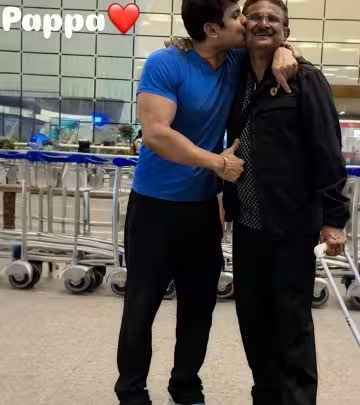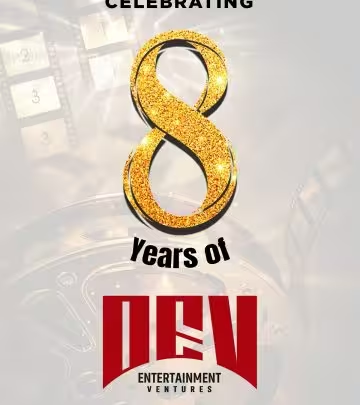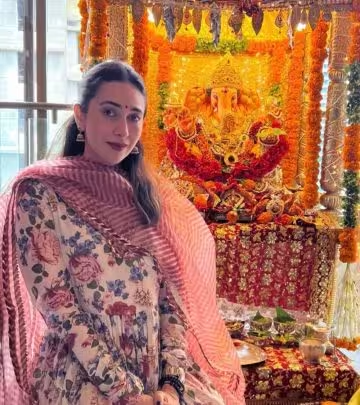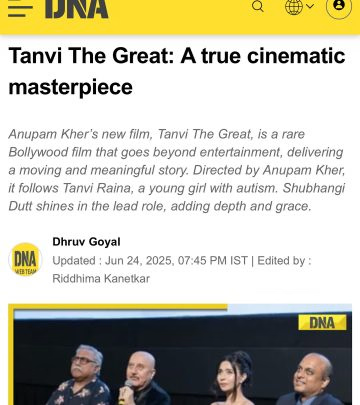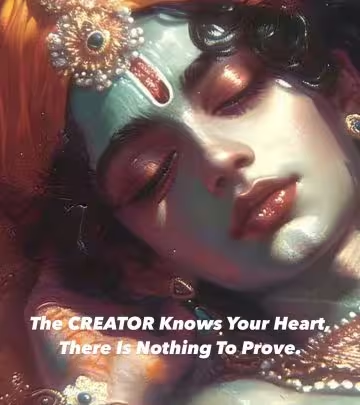FWICE Criticizes Border2 Casting Choice
Industry insiders react as FWICE challenges casting choices for Border2 film project news!
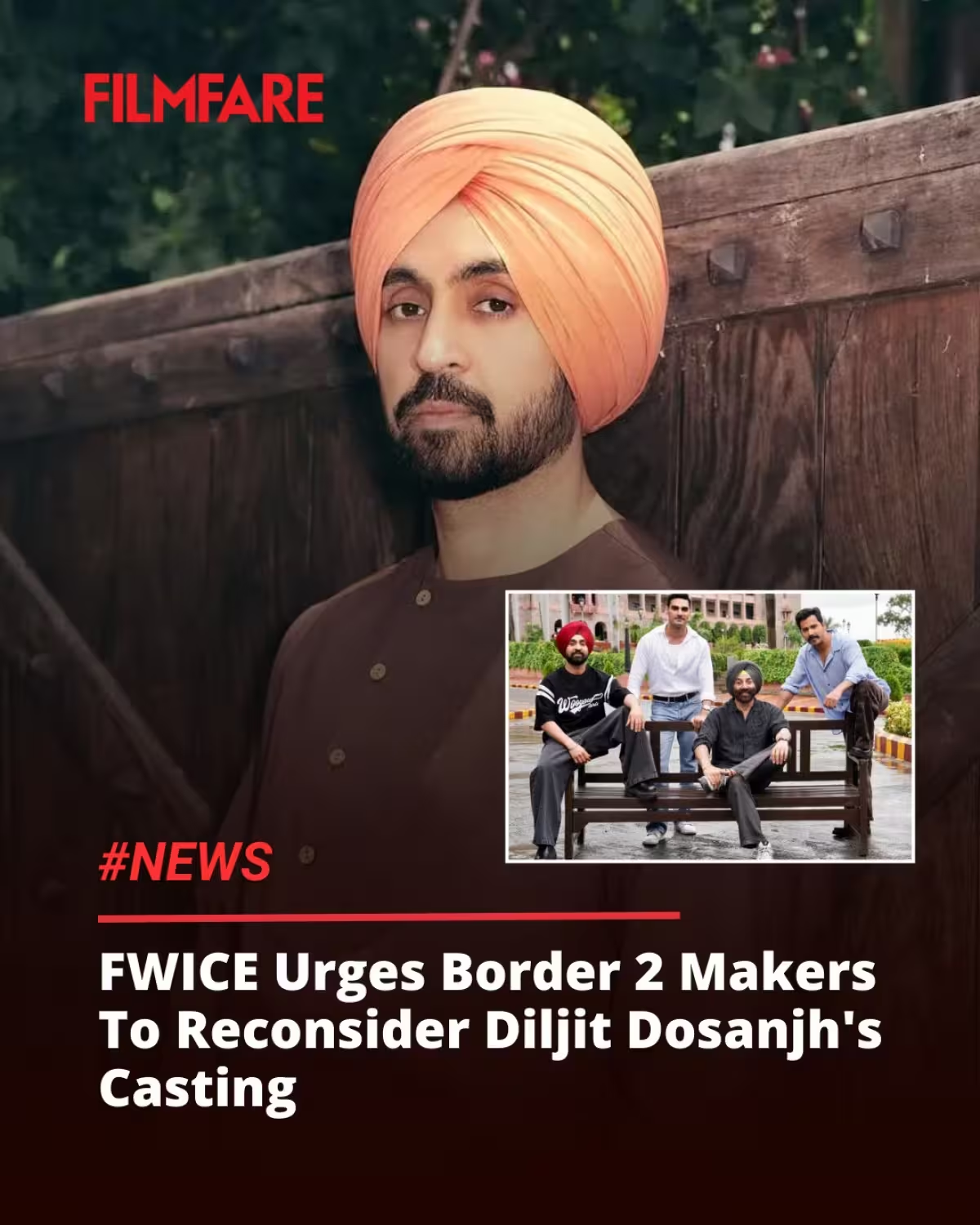
Image: Instagram
In a bold move that has sent ripples across the Indian film industry, the Federation of Western India Cine Employees (FWICE) has publicly expressed its discontent with the casting decisions made for the upcoming film Border2. The letter—addressed to industry heavyweights Bhushan Kumar, JP Dutta, Nidhi Dutta, and Anurag Singh—directly challenges the inclusion of actor-singer Diljit Dosanjh in the project, which is produced by JP Films in collaboration with T-Series and helmed by director Anurag Singh.
Fwice Letter Sparks Industry Debate
FWICE, which represents a substantial segment of the core workforce of the Indian film and television industry, articulated its disappointment in no uncertain terms. The letter reads: “The Federation of Western India Cine Employees (FWICE), representing the core workforce of the Indian film and television industry, is deeply disappointed and concerned by the casting of actor-singer Mr. Diljit Dosanjh in your upcoming film Border 2 produced under the banner of JP Films in collaboration with T-Series and directed by Mr. Anurag Singh.” This strong statement underscores the union’s grave concerns over what they see as a potential deviation from established casting standards.
Industry Voices Weigh In
The controversy arises amid an industry environment where casting decisions have increasingly become subjects for heated debate. Diljit Dosanjh, known for his dual talents in both acting and singing, has enjoyed widespread popularity, yet his inclusion in Border2 appears to have struck a discordant note among certain industry insiders. FWICE’s letter is not only a criticism of a singular casting choice but also a broader commentary on the evolving dynamics between creative decisions and the core workforce that underpins film production.
Industry insiders have speculated that the FWICE’s concerns may extend beyond mere artistic preferences. Many view the casting of high-profile figures like Dosanjh as emblematic of a broader trend where star power sometimes overshadows the traditional craft and technical expertise that has long been the foundation of Indian cinema. While the letter stops short of detailing specific reasons beyond disappointment, its language hints at an underlying tension between the creative vision of the filmmakers and the established norms upheld by the core industry personnel.
A Closer Look At The Casting Controversy
The FWICE’s choice to address this issue publicly is significant. Historically, film unions tend to avoid direct confrontations with producers and directors. In this instance, however, FWICE appears determined to assert the importance of employment practices that respect the traditional contributors of cinema. The letter’s direct tone and clear references to the decision-makers—Bhushan Kumar, JP Dutta, Nidhi Dutta, and Anurag Singh—signal that the union is prepared to escalate the issue if their concerns regarding casting and hiring practices are not properly addressed.
Additionally, the controversy is being closely monitored by both trade experts and fans, as it touches on deeper issues such as meritocracy and the balance between commercial blockbusters and the integrity of film production values. While Diljit Dosanjh has a commendable track record and a massive fan following, the FWICE’s statement suggests that his casting might be seen as part of a trend where financial or promotional considerations begin to outweigh the practical needs of the filmmaking process.
Visual Insight And Ongoing Coverage
Accompanying the announcement is an image posted on Instagram that offers a glimpse into the matter. The image, showing snippets of the letter and related details, reinforces the official nature of FWICE’s stance. The accompanying post encourages readers to “Read more through the link in bio,” which has further spurred online discussion and analysis among industry watchers and fans alike.
Leading entertainment outlets, including Filmfare, have picked up on the story, adding a layer of industry validation to the concerns voiced by FWICE. The situation continues to unfold, and stakeholders from all sides are keenly observing how the makers of Border2 will respond to the union’s bold critique.
As debates intensify on social media, industry figures are also weighing in. Skeptics of the casting decision argue that star power can bring new energy and a broader audience to films, while purists insist that the technical prowess and dedication of the crew should remain paramount. This clash of opinions reflects a broader cultural conversation about the state of cinema in a rapidly evolving entertainment landscape.
The FWICE letter has now become a focal point in discussions about casting ethics and industry standards in Bollywood. With many speculating about the potential ripple effects, it is clear that the controversy is far from a passing issue. Both filmmakers and union representatives will need to negotiate these challenging waters carefully as they seek to balance commercial success with the preservation of artistic integrity.
The issue remains dynamic and is expected to be a topic of discussion in upcoming industry panels and trade forums. As the dialogue continues, the FWICE’s proactive stance serves as a reminder of the influential role that behind-the-scenes professionals play in shaping the cinematic landscape.
While the final outcome of the controversy is yet to be seen, the strong words from FWICE underscore a pivotal moment in Bollywood—a moment where traditional values and emerging trends are in direct conflict, and where every casting decision carries with it far-reaching implications for the future of the industry.
Read full bio of Glendon Moss







